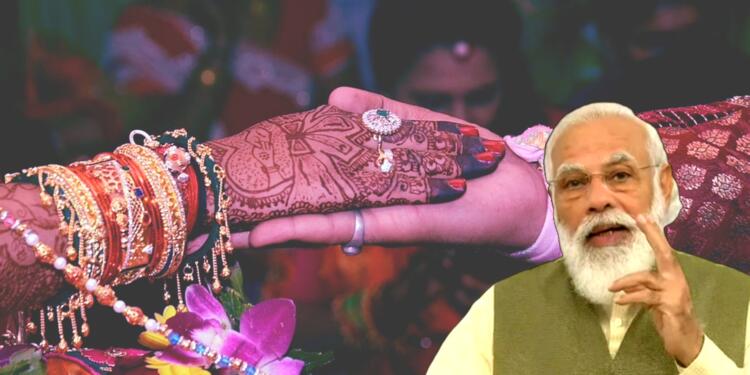“Women’s age of marriage was increased from 15 to 18 years in 1978, by amending the erstwhile Sharda Act of 1929. As India progresses further, opportunities open up for women to pursue higher education and careers”- This is what Finance minister Nirmala Sitharaman had said in the Union budget for 2020-21. In a bid to present more opportunities to women of the nation and mark a revolutionary decision to ensure their better stature in society, the Union Cabinet on Wednesday (December 15) stepped in with the decision to increase the legal age of marriage for women from 18 to 21 years. Interestingly, the decision has brought the age of marriage for both men and women at par.
While the law essentially prevents the abuse of minors and outlaws child marriages, the increase in legal age for marriage of women will have long term effects on their psychological, physical, and educational factors.
Laws to ensure better physiological health:
Marriages in India are considered to be a process to give birth to a baby to gladden the relatives and in-laws. One of the parameters that define an ideal daughter-in-law is to get pregnant as early as possible. Thus, a woman married at the age of 18, faces an unbearable pressure to conceive despite knowing its repercussions. According to WHO reports, adolescent mothers (ages 10–19 years) face higher risks of maternal health problems, disability and death, reinforcing risking problems for their newborns as compared to women aged 20 to 24 years.
Though there has been a steady decline in India’s adolescent fertility rate, it still happens to be a severe problem in the country. Teenage pregnancy is almost double in rural areas, 9.2%, as compared to urban, 5%, in India.
Thus, the Union Cabinet’s decision to raise the legal age of women will ensure better health of women in India as they will not have to suffer the pain and complications caused due to adolescent pregnancies.
A better psychological cycle:
The negative impacts of early marriage on women do not end with physiological factors. It has more to do with psychological factors that can worsen the condition of women even more. It is a well-known fact that early marriages of women are the results of religious beliefs, norms, and social impacts. But the immaturity and the lack of ability to deal with responsibilities at adolescence reflect badly on the mental health of a woman who is forced to run a family after getting married.
Psychological impacts on a woman married at an early age:
- Emotional immaturity
- They are likely to develop clinical disorders such as depression, anxiety, Post-partum Depression, in cases of domestic violence, miscarriage, etc.
- Failure to meet up the expectations of the elders leads to various types of psychological issues.
- Incomplete goals and dreams in life might lead to a clash and conflicts within the family further leading to low self-esteem and decreased confidence.
Dr Rachna Khanna Singh, mental wellness, lifestyle, and relationship expert, had also informed, “Girls who get married too young who have had very minimal exposure face a real hard time settling down. This is because their maturity levels are not high enough, which is from the mental health perspective. From the physical health perspective, their reproductive organs are also not mature enough. Having said that, one should wait at least until the early 20s to have a child or expand your family.”
Now, with the age limit increased to get married, women will not have to face psychological problems.
New laws to help women attain higher educational qualifications:
A girl getting married is often expected to end her formal education and dreams of having a successful career as well. She, as per society norms, is expected to deal with the responsibility of home, children, and extended family. Thus, it becomes almost impossible for a married girl to pursue her education and build a career for herself in most of the cases that end up making her dependent on her husband and in-laws for everything.
Now, with the law improved, a girl can attain education by the age of 21 that can boost her confidence. Ultimately, with the educational background and confident approach, women can become independent and lead a happy and prosperous life altogether.
This is the Modi Government for you defining the true meaning of women empowerment.
